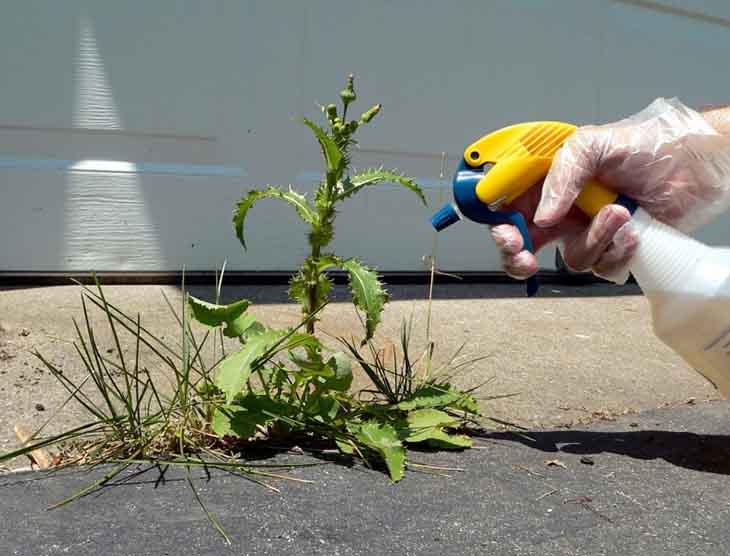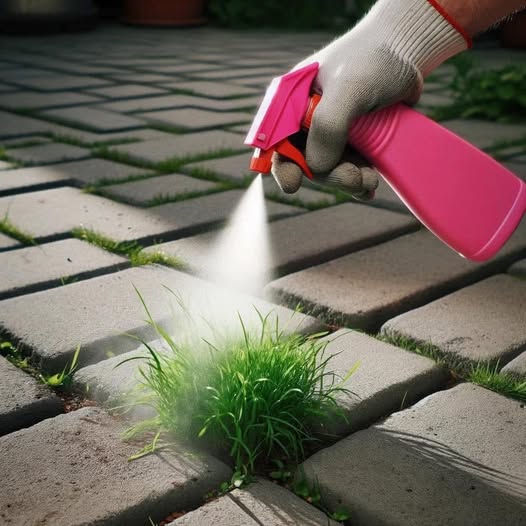Learn strategies to keep your garden or yard weed-free naturally.
Is your garden or yard under attack by unwanted weeds?
Before resorting to chemicals that can harm the environment and the health of your plants, why not try some natural and cost-effective solutions?
Inspired by simple techniques, these strategies may be just what you need to keep your green space healthy and free from invaders.
Let’s go!
Detergent, Salt and Vinegar: The Unbeatable Trio
A potent mixture that uses white vinegar, known for its ability to absorb moisture due to acetic acid, detergent, which serves as a sticking agent, and salt.
Apply this solution directly to the weeds during the sunny hours of the day to observe rapid dehydration and death of the weeds.
Baking Soda: The Guardian of the Path
To protect your garden’s paths and sidewalks, baking soda emerges as one of the most effective ecological solutions.
Simply spread a generous layer over the weeds, being careful not to get any on the grass or other desired plants.
Mulch: The Protective Barrier
By using a thick layer of mulch, such as bark, you create a physical barrier that suppresses perennial weeds by smothering them.
This cover blocks sunlight, preventing new weeds from growing among your crops.
Hot Water: The Fatal Blow
A simple and quick method, applying boiling water directly to weeds is an effective organic solution.
Be sure to apply the hot liquid carefully, aiming at the roots of the weeds, to avoid damaging the plants you want to protect.
Newspaper: The Surprise Coverage
Place three or more layers of damp newspaper over the weeds in your garden or flower bed.
For a more aesthetically pleasing look, you can cover the newspaper with a layer of bark or gravel.
Manual Starting: The Traditional Method
Although it can be laborious, pulling weeds by hand is an effective way to control them.
In larger areas, using a hoe can make this process easier, especially between rows of vegetables and flowers.
White Vinegar: The Acidic Solution
To prevent new weeds from sprouting, dilute white vinegar in equal parts with water.
Put the solution in a spray bottle and apply to problem areas.
The acetic acid in vinegar gradually dehydrates weeds, making it effective in cracks and crevices between sidewalks.

Salt: The Natural Dehydrator
Applying salt directly to weeds near sidewalks and pathways can be a quick fix to dehydrate them.
However, due to the residual effect of salt in the soil, use this technique with caution and away from other plants.
Vegetable Cooking Water: Nutrition and Protection
The nutrient-rich water released by vegetables during cooking, especially when they contain salt, can be used to kill weeds growing in the garden.
Apply hot water to the affected areas and wait a few days to see the results.
Try these strategies to keep your garden or yard weed-free in a natural and sustainable way. Your green space will thank you!



